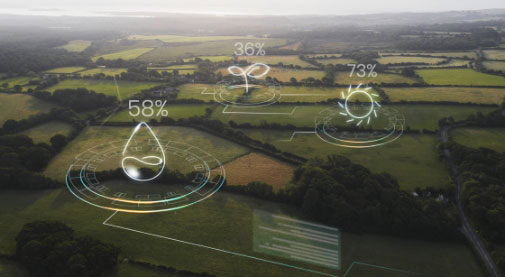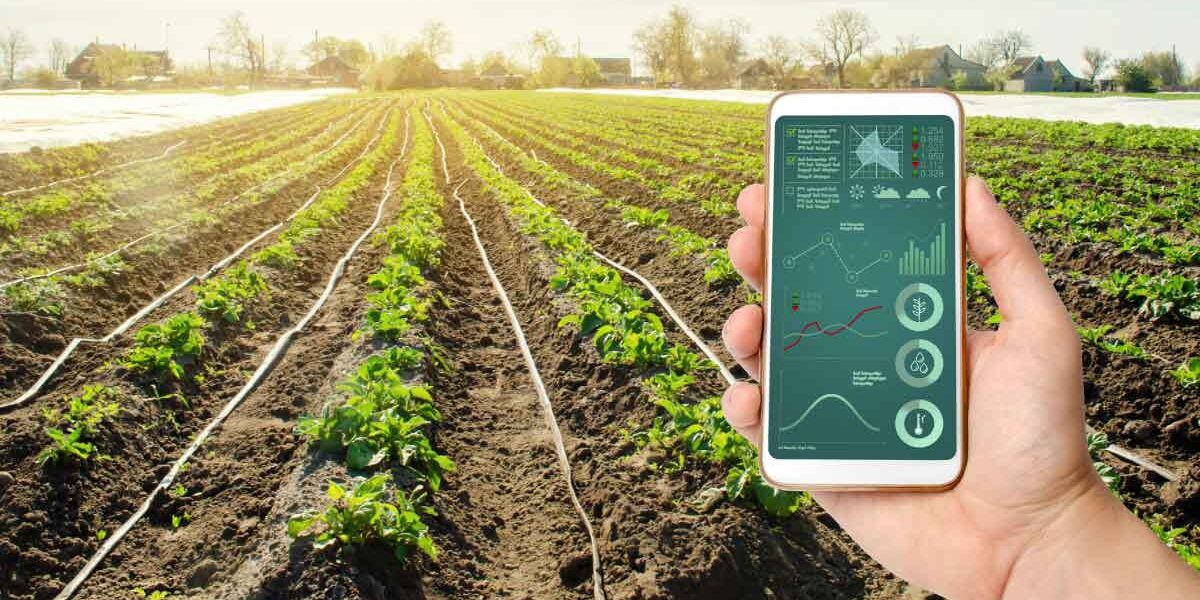Prelude
Traditionally, farming has been in the past and will remain in the tomorrow to be a manual and labor-intensive industry. Almost all the industries are now leveraging the benefits of advanced technologies such as Artificial Intelligence (AI), Internet of Things (IoT) services, Machine Learning (ML), and Big data & Analytics. Let’s dive into how the use of IoT in farming augurs well for the Industry?
John Deere Co has taken a small initiative in the 1990s of operating a GPS in tractors connected to the satellite for automated navigating the crop map overcoming errors and therefore boosting crop yield by a decrease in wastage grains, maximum utilization of fertilizers & manures, fuel, and the time approached a full-fledged industry.
One of the reports issued by the Food and Agriculture Organization (FOA) of the United Nations state that “there will be 8.5 billion human beings on our earth by 2030 and 9.6 billion citizens on earth by the year 2050.” It is expected that to serve this population, food production must grow by 70%, thinking limited agricultural land, deficiency of freshwater, and ever-changing climate circumstances.
Taking up this challenge, attempts are in a position to develop the quality and quantity of agriculture produce by delivering them with the ‘Intelligent’ and ‘connected’ through “smart farming,” also known as “precision farming.” Precision agriculture as an industry is predicted to rise to 43.4 billion USD by the end of 2025.
So, What is Smart Farming?
Smart farming can be ascribed as the 4.0 green revolution in agriculture, merging agriculture methodologies with technologies including the Internet of Things (IoT), Sensors & Actuators, Information, and Communication Technology (ICT), Drones, and Robotics to deliver desired production deficiencies with managed cost.
One of the studies states that “Already 80% of farmers in the US and 24% of the UK started practicing Smart Farming Tool (SFT)”. These numbers are informed of the truth that SFTs are appending power to the farming ecosystem. As far as the operations system is studied, Smart farming tools and techniques can be utilized to large-scale distributed conventional farming. They can be utilized in a concentrated small growing organization of organic farms.
Primary applications of IoT in agriculture:
Precision Farming
IoT solutions and High-tech farming methods can assist the farmers in improving the fieldwork performance significantly. IoT sensors are connected in the field for broad surveillance of crops. These devices assist farmers in getting real-time information about the device areas and topographies. Furthermore, these sensors also catch other measurements such as soil temperature and drug level. IoT also assists in checking gaps while performing farming exercises by predicting surface weather statuses. IoT encourages precise farming with smart IoT solutions.
Smart Pest Management
Controlling pests smartly is required as the standard field inspection systems employ huge time and need effort. With IoT technology, this process now becomes exceptionally smooth and fast. Its innovative solutions can examine pests in the field and give valuable insights to take on imminent things. It also ensures that good quality pesticides are being applied in the field without risking the health of crops. Farmers are informed with real-time alerts if any scarcity is seen in crop health to take proper actions.
Intelligent Livestock Management

Livestock and cattle are the main functions of areas as they serve in various farming enterprises. Farmers have to see after their well-being and feeding habits often, which continues to farming attempts. IoT solutions provide significantly to monitoring and improving the health of livestock. IoT-based smart wearable devices are utilized for this goal. These wearables hold neckbands connected with the IoT dashboards and forms to show and give readings about the fitness parameters of cows, horses, and other farm animals. Here come IoT devices into the picture that assists farmers in knowing livestock’s body temperature, blood pressure, and other health parameters.
Teksun is Offering end-to-end IoT-based solutions.
NDVI Camera Design For Crop Health Monitoring
NDVI (normalized difference vegetation index) Camera Device is a drone-mounted product that gives an aerial examination of specific Crop’s Health metrics. The device seizes NIR imaging and sends out NIR image processing against an NDVI Index database of a particular Crop.
Smart Soil Sensor for Farm & Garden
Smart Soil Sensor for Farm & Garden from Teksun is an IoT-based solution that assists the farmers and growers to monitor a farm, garden, and field-related soil data through a connected Mobile and Web App.
Smart Humidity Sensor for Agriculture Industry
Smart Humidity Sensor for Agriculture Industry is an IoT-based solution that monitors soil humidity and automatically reports it through a connected Mobile and Web Application.
DC Motor Controller For Tractor
DC Motor Controller for the Tractor is a tractor-mounted device that instantly manages tractor speed balance, thus enhancing fieldwork accuracy.
Nano spectrum analyzer
A nano spectrum analyzer measures the molecular structure of organic materials such as Fruits & Vegetables, Medicine, and the Human Body.
NPK Detection IoT Sensor
NPK Detection IoT Sensor will make compact, mobile, and affordable soil nutrition testing. The sensor delivers acute levels of soil Nitrogen, Phosphorus, Potassium (NPK), and other micro-nutrition(s) from the soil during all platforms of a plant’s growing cycle.
Conclusion
The quickly growing use of IoT solutions in farming is changing the agricultural sector entirely into smart farming. Farmers working on smart farming activities are viewing huge profits with improved productivity and quality of products. Futuristically, Smart farming will take the agriculture sector to a completely new level where every method will be automated, maximum productivity, driving to a stable ecosystem between market and supply.



